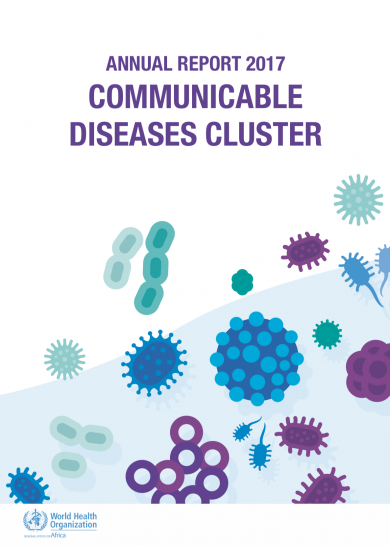
Annual report 2017: Communicable Diseases Cluster
The 47 countries that are Member States of WHO in Africa are home to more than one billion women, children and men. They are living in communities that are making varied, sometimes fragile, but often significant gains towards combating communicable diseases.
The Communicable Diseases Cluster (CDS) of the WorldHealth Organization (WHO) Regional Office for Africa (AFRO) consists of five teams working together to reduce the burdenof infectious diseases. Working with a shared purpose within a common strategy, the combined efforts of the CDS teamsare bringing considerable benefits to health cross the region.
The scale of the problems the CDS teams seek to address is hard to overstate. Globally, 13 million people die each year from infectious diseases. In some countries, this equates to one in two deaths.
HIV/AIDS, malaria and tuberculosis (TB) account for the overwhelming majority of deaths in the African Region. Added to these, a range of neglected tropical diseases (NTDs) and hepatitis also contribute to fatalities.
Weak health systems, slow economic growth, rapid urbanization and environmental change all amplify the impact of communicable diseases. Communicable diseases are also contributing to slowed development, strengthened cycles ofunderdevelopment and the consumption of limited financialresources. Populations who already face disadvantage – namely women, children, the elderly and the poor – are the most vulnerable.


